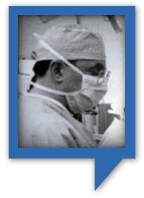Do you believe that traditional hospitals will be obsolete in the future? A recent survey found that 57% of those polled believed that would happen.
The survey, sponsored by the Intel Corporation, involved 12,000 subjects from the United States and seven other countries around the world.
Here are some other revelations from that survey:
84% said they would be willing to share their personal health information to advance and lower costs in the healthcare system.
70% said they were receptive to using toilet sensors, prescription bottle sensors, and swallowed health monitors.
53% said they would trust a test they personally administered as much or more than if that same test was performed by a doctor.
My favorite response was that 30% of people would trust themselves to perform their own ultrasounds. That made me laugh. Ultrasonography is one of the most operator-dependent tests in use today. It is not easy to perform, nor is it easy to interpret.
I then began to wonder about the credibility of this survey. Before I retired, I practiced in a typical small town in the northeastern United States. Some patients Googled me, and a few searched the Internet for information about their illnesses. But for the most part, it was a technologically unsophisticated population.
I just can’t envision most of my patients wanting to share their personal health information, using toilet sensors, or trusting tests they did at home. Do their own ultrasounds? Not likely. Many of them did not even know what medications they were on.
After rereading the article about the survey, it occurred to me that the sample may have been flawed.
This sentence stood out. “[The] Intel Health Innovation Barometer was conducted online by Penn Schoen Berland in Brazil, China, France, India, Indonesia, Italy, Japan and the United States.” The key word is “online.”
This reminded me of a famous survey conducted by a magazine called The Literary Digest, which polled 10 million people and had a response of 2.4 million just before the 1936 presidential election. The magazine had correctly called the previous four presidential winners.
The names of the 10 million people queried were drawn from lists of the magazine’s subscribers, owners of automobiles, and those with telephones. The survey predicted a crushing defeat for Franklin Delano Roosevelt at the hands of the Republican nominee, Alf Landon.
Of course, the opposite occurred. Roosevelt won easily. What went wrong? Unlike the prior years, 1936 was the middle of the Great Depression, and this time, those who had enough money to subscribe to The Literary Digest, own cars, and have telephones were not a representative sample of those who voted.
Do you think maybe the 12,000 people polled online might not be a representative sample of the general population of the world?
I’m not expecting patients to do their own ultrasounds anytime soon. I think hospitals will be around for a while too.
Skeptical Scalpel is a retired surgeon and was a surgical department chairman and residency program director for many years. He is board-certified in general surgery and a surgical sub-specialty and has re-certified in both several times. For the last three years, he has been blogging at SkepticalScalpel.blogspot.com and tweeting as @SkepticScalpel. His blog averages over 1400 page views per day, and he has over 8400 followers on Twitter.


 SkepticalScalpel
SkepticalScalpel